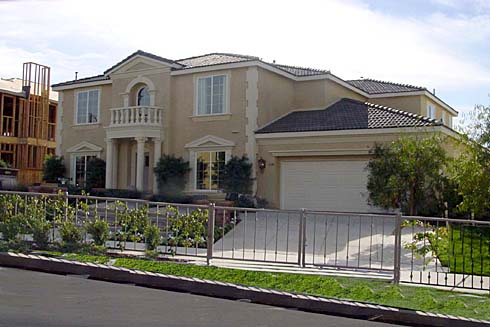REPLACEMENT RESERVE
Understanding Replacement Reserve in Real Estate
When it comes to real estate investment, understanding the concept of replacement reserves is crucial. Replacement reserves refer to the funds set aside from the net operating income to cover the eventual wearing out of short-lived assets within a property. This proactive approach ensures that property owners can address necessary replacements and repairs without facing financial strain or unexpected expenses.
Importance of Replacement Reserves
Long-Term Asset Management
Replacement reserves play a vital role in the long-term management of a property. By allocating funds for future repairs and replacements, property owners can maintain the asset's value and functionality without disrupting cash flow or profitability.
Financial Preparedness
Having replacement reserves in place provides financial preparedness for property owners. It allows them to address unexpected repairs or replacements without compromising the property's upkeep or experiencing financial strain.
Investor Confidence
For real estate investors, the presence of replacement reserves signals responsible and proactive property management. This can enhance investor confidence and make the property a more attractive investment opportunity.
Calculating Replacement Reserves
Calculating Replacement Reserves
Reserve Study
One common approach to determining the appropriate amount for replacement reserves is through a reserve study. This involves conducting a comprehensive assessment of the property's short-lived assets, estimating their remaining useful life, and calculating the projected costs for their eventual replacement.
Cash Flow Analysis
Property owners can also calculate replacement reserves based on a percentage of the property's net operating income. By allocating a specific percentage towards reserves, property owners can ensure a consistent and sustainable approach to funding future replacements.
Implementation and Best Practices
Separate Account
It is advisable to establish a separate account or fund specifically designated for replacement reserves. This separation ensures that the allocated funds are not commingled with other operating expenses and are readily available when needed.
Regular Review
Property owners should regularly review and adjust the replacement reserve fund based on evolving property needs, cost projections, and changes in the property's overall condition. This proactive approach ensures that the reserve fund remains aligned with the property's requirements.
Professional Guidance
Seeking guidance from financial advisors or real estate professionals can provide valuable insights into establishing an appropriate replacement reserve fund tailored to the specific property and market conditions.
Conclusion
In the realm of real estate investment, replacement reserves serve as a proactive and prudent financial strategy to ensure the long-term sustainability and value of a property. By allocating funds towards anticipated future replacements and repairs, property owners demonstrate a commitment to asset preservation and financial preparedness, ultimately contributing to the overall success of the investment.
Understanding the importance of replacement reserves and implementing best practices for their management is essential for property owners and investors alike, as it can significantly impact the property's financial stability and long-term viability.
MORE REAL ESTATE TERMS
A, B, C, D, E, F, G, H, I, J, K, L, M, N, O, P, Q, R, S, T, U, V, W, X, Y, Z
Featured New Home

Featured Mortgage Brokers
- TOP FLITE FINANCIAL INC, WEST LINN, OR
1800 BLANKENSHIP RD STE 200
WEST LINN, OR 97068 - PRIMELENDING A PLAINSCAPITAL COMPANY, NORTH SYRACUSE, NY
6702 BUCKLEY RD STE 140
NORTH SYRACUSE, NY 13212 - KENTUCKY HOUSING CORPORATION, FRANKFORT, KY
1231 LOUISVILLE RD
FRANKFORT, KY 40601 - Priority Mortgage Corp., mortgage broker in Worthington, OH
150 E Wilson Bridge Rd Ste 350
Worthington, OH 43085 - MOVEMENT MORTGAGE LLC, FREDERICKSBURG, VA
4920 SOUTHPOINT DR
FREDERICKSBURG, VA 22407